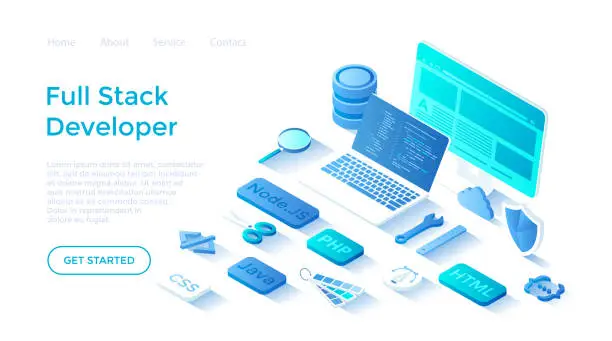
There are lots of non-coding tech skills for anyone to learn in the Tech industry.
The Tech industry is one of the most innovative industries in the corporate space and this explains why many people want to enter the industry and a good number of these people do not have the flair for coding. Maybe because learning how to code can be daunting, frustrating, or perhaps even scary.
However, the word “Tech” doesn’t mean coding but abbreviation for technical or technological, it describes a company, system, area of work, and others that does or makes something involving technology. Many IT companies are looking for talent as the demand for products and services has been gaining momentum with the shift toward digital technology and services.
These skills are equally as valuable, challenging, and lucrative as any tech skill out there but they do not require coding.
Non-coding Tech Skills
Project Management
This skill is suitable for individuals who have a knack for leading teams and getting things done within a specified period. A project manager’s job is similar to that of a wedding planner tasked with planning projects.
They oversee these projects and follow the road map through every stage of the process. This job requires daily evaluation of employees, as well as leadership and motivation skills to be successful.
UX Design
If you can conceptualize and execute ideas, then, this is the tech skill for you. Users’ experience designers shape the products and services we use every day. They try to blend users’ desires with technical feasibility and business viability.
They design the entire journey and interaction of users with an app or website. What UX designers primarily do include testing, iterating, developing content, analyzing competitors, carrying out research on customer needs or behavior, creating product structure and strategy, collaborating with developers and user interface designers, etc.
Technical Writing
This could be the field for you if you enjoy writing, sharing, and explaining your ideas on paper. Technical writing involves conveying your ideas, views, instruction, explanation, or suggestions logically and technically.
Technical writing has to do with press releases, reports, announcements, business proposals, product descriptions, press releases, white papers, user manuals, etc. The skills required for a career in technical writing are excellent communication, storytelling, and a good grasp of English grammar.
Technical Project Manager
A technical Project manager is one of the less-known skills in tech. A technical project manager plans, schedules, and manages IT-related projects. They ensure the smooth running of complex IT or IT-related projects, within a specific time frame and a budget.
However, to get this done, they brainstorm ideas, plan a project, schedule and designate projects.
Additionally, they execute by collaborating with unit leaders, and manage the different teams and budgets.
Marketing
Marketing is an accommodating skill infused into any industry including tech. However, it is also quite broad because there is digital marketing, product marketing, content marketing, advertising, and so on.
Therefore as more startups sprout, the more they need visibility to expand the business. Besides, if you learn a marketing skill, you stand a great chance as a marketer, and a chief marketing officer.
Data Analysis
Information is power. Every industry works with data and tech isn’t excluded. Analytics of a company’s visibility on social media, and the internet, internally and externally needed constantly to gauge progress. Hence, data analysis is a process that involves transforming, and rebranding data to discover useful information for business decision-making.
Moreover, every tech company works with a data analyst and if you are interested in researching, then this skill is for you.
In conclusion there are several jobs created everyday as long as technology continues to disrupt and redefine the future of work.
Therefore if you do not possess any coding skills there are still opportunities in the Tech industry for you.
All you need is to find a role that aligns with your interest, strengths, and experience.














